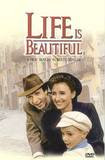 A few months ago a friend of mine with her husband became custodial parents of a three day old baby boy after his birth mother decided she no longer wanted him. Her baby shower was last week for little Joey.
A few months ago a friend of mine with her husband became custodial parents of a three day old baby boy after his birth mother decided she no longer wanted him. Her baby shower was last week for little Joey.As some parents have learned, you aren’t going to change the essence of who s/he is. Don’t try to make the situation different than it is. It’s OK for it to be different. Expecting anything else puts an undue burden on the child s/he can’t possibly live up to.
Joey's new mom told me that many hopeful adopting parents often don’t want to adopt within the US foster care system because they see noticeable psychological burdens on the children who bear them. But somehow lost in the idealism and optimism of parenthood is the reality that most likely, children adopted abroad also come with some psychological and/or physical obstacles. Most often children from Eastern European and other orphanages are there because they were removed by the state from custody of their own parents who neglected them, beat them, sexually abused them, and were alcoholics and drug addicts–the very same reasons kids are in foster care in the US.
I’ve seen close up the realities of orphans’ lives. I’ve also seen up close how adoptions can end pretty close to happily-ever-after. And most commonly I’ve seen families who walk the middle ground, where an adopted child was not quite what was expected, instead struggling with pervasive developmental disorders. But a family loved him and made untidy peace in the end.
I see families that create families from their own genetic pool, experiencing unexpected birth outcomes and are left with the prospect of life-long care for a disabled child. I see parents that question their abilities and doubt their strengths, crushed helpless under their failures as a child struggles. I watched as my own mother and father gave all they had to seven kids, one who ran away but came back, 5 who graduated from high school, but 2 who graduated from college, many who were inactive but 4 who were sealed in the temple. They taught me by example that as parents we are the father in the parable of the prodigal son, unsure of the outcome the morning after the feast, but ready to give all for the child who has been lost.
Life has taught me that when it comes to parenting it is not our job to save our children. It is our job to show them where salvation lay, regardless of whether or not our ideal of a family unit is rejected by them. We give them our best, because in the end what every child needs is what we need. What every child wants is what we want, someone to love them unconditionally–someone who will be there with outstretched arms to gather us in.













